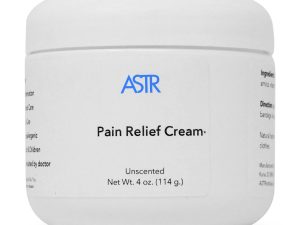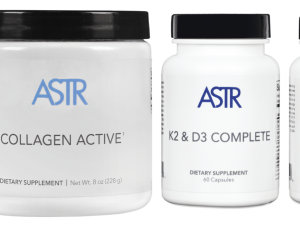Hemp Seed Oil vs. Cannabinoids (CBD) Oil vs. Marijuana
Hemp Seed Oil vs. Cannabinoids (CBD) Oil vs. Marijuana
There is an increasing awareness about the benefits of hemp oil and CBD oil, but some people might still be confused between the two types of oils. Most people use the terms “hemp oil” and “CBD oil” as if they are the same. These oils are very different from each other. It is important to understand the differences between them, to select the appropriate products, for the specific purposes they are made for.
So what is the difference between hemp seed oil and CBD oil? In this article, we will make understanding both types of oil as easy as admiring their benefits.
Hemp Seed Oil
Hemp seed oil is obtained by cold-pressing the seeds of the Cannabis Sativa plant. There are no cannabinoids (CBD or THC) in Hemp seed oil, as the seeds of the plant do not carry CBD or THC.
Hemp seeds contain high proportions of oil and the remaining byproduct from the seed is used for animal feed and protein supplements. The process of extracting hemp seed oil is much simpler than CBD oil. The oil is extracted from the seed through cold-pressing, and then the sediment is filtered from the acquired liquid.
Hemp oil will not make you high because of no THC, but hemp seed oil can be used for various health benefits. The hemp seeds are rich in nutrients, bioactive compounds, and fatty acids. It consists of gamma-linolenic acid, omega-3, and omega-6 fatty acids, vitamin B, vitamin C, calcium, iron, and various nutritional antioxidants. (1)
As hemp oil has a high nutritional value, it can be used in granola bars, loaves of bread, or cookies. It can help in alleviating constipation, altering the immune system, refining gastrointestinal situation, and improving skin health. According to a study, it can improve cholesterol and triglycerides, therefore it can aid in maintaining a good cardiovascular system, but the results of the study are not as clear. (2)
Cannabinoids CBD Oil
While for the production of CBD oil, there is no use of seeds, but it is made from the flowers, stems, and stalks of the hemp plant, and has a high concentration of Cannabidiol (CBD). Three kinds of CBD oil are:
- Full-spectrum CBD oil
- Broad spectrum CBD oil
- CBD isolate oil
Full-spectrum CBD oil contains all the cannabinoids found in the hemp plant, including THC. However, it contains very few amounts of THC, i.e. less than 0.3%. Such low levels of THC mean that even full-spectrum CBD oil will not make you high, even if it is consumed in high quantities.
Broad-spectrum CBD oil contains all the cannabinoids found in the hemp plant including CBD, however, it does not contain THC.
CBD isolate uses only CBD and eliminates all the other cannabinoids from the oil. So this oil will give the benefits of cannabidiol, but you will not be able to enjoy the benefits of all the other cannabinoids that exist in the hemp plant.
Carbon dioxide extraction and similar specialized techniques are used to extract CBD oil and other components. (3)
CBD oil affects the endocannabinoid system. There are numerous cannabinoids in the hemp plant, and those cannabinoids interact with the endocannabinoid system once they enter your body. Once the cannabinoids get into the body through CBD oil, they activate the cannabinoid receptors, CB1 and CB2, and then send signals between the nerve cells to keep the body functioning normally. The cannabinoids help in restoring the normal balance of the body and help to treat epilepsy, pain, anxiety, inflammation, depression, stress management, addiction management, etc. (4)
CBD can interfere with the other medications you are taking. So if you are planning to use CBD or hemp oil, contact your doctor or a cannabis medical specialist first.
Hemp vs. Marijuana
Hemp and Cannabis (or marijuana) are two categories of the same plant, known as Cannabis Sativa. The two main components of Cannabis Sativa are Tetrahydrocannabinol (THC) and Cannabidiol (CBD), amongst the variety of cannabinoids found in the plant.
Cannabidiol, or CBD, has many health benefits, and it is increasingly being used for medical purposes. It has no psychoactive effects, and it is used for treating several health issues, such as insomnia, depression, anxiety, pain, heart issues, diabetes, epilepsy, etc.
THC is a psychoactive compound that can make you “high”. Marijuana contains 30% of THC, while hemp contains less than 0.3% of THC. This is why the consumption of marijuana will make you high, whereas hemp won’t.
Marijuana’s primary purpose is to be used for its psychoactive benefits, and it is grown for recreational purposes. Cannabis or marijuana has higher THC and low CBD components. However, hemp plants are not the same as marijuana plants in this context. It contains high CBD and low THC. The percentage of THC components is what makes hemp legal in most states. (5)
Both hemp seed oil and CBD oil are extracted from the hemp plant. This is because of the lower percentage of THC, and a higher percentage of CBD components found in the hemp plant. Hemp is essentially used for biofuels and industrial purposes.
Their association with the same plant is what makes it confusing for most people to differentiate between the two oils in the first place.
Legality
Now the question arises if hemp oil and CBD oil are legal?
As far as hemp is concerned, it is approved by the FDA. It is legal on all levels and allowed to be bought or sold almost everywhere.
However, the legal status of CBD is critical, and the CBD market is extensively unregulated. It was legalized under the 2018 Farm bill. The CBD products should contain a very low amount of THC compound, i.e. less than 0.3% so that the product does not have any psychoactive effects.
CBD that is derived from hemp plants is legal on the federal level, but under some state laws, it is still considered illegal. So it is necessary to check the laws of the state you belong to, to clarify the legality status of CBD products. (6) (7)
References
2. Kaul N, Kreml R, Austria JA, Richard MN, Edel AL, Dibrov E, et al. A comparison of fish oil, flaxseed oil and hempseed oil supplementation on selected parameters of cardiovascular health in healthy volunteers. J Am Coll Nutr [Internet]. 2008 Feb [cited 2021 Nov 29];27(1). Available from: https://pubmed.ncbi.nlm.nih.gov/18460481/
3. Website [Internet]. Available from: https://www.ncbi.nlm.nih.gov/pmc/articles/PMC6100014/
4. Shannon S, Lewis N, Lee H, Hughes S. Cannabidiol in Anxiety and Sleep: A Large Case Series. Perm J [Internet]. 2019 [cited 2021 Nov 29];23. Available from: https://www.ncbi.nlm.nih.gov/pmc/articles/PMC6326553/
5. Website [Internet]. Available from: https://www.ncbi.nlm.nih.gov/pmc/articles/PMC4550350/
7. Website [Internet]. Available from: https://www.fda.gov/news-events/public-health-focus/fda-regulation-cannabis-and-cannabis-derived-products-including-cannabidiol-cbd
-
Pain Relief Cream
$49.00 – $299.00Price range: $49.00 through $299.00 Select options This product has multiple variants. The options may be chosen on the product page -
-
Chronic Fatigue Kit
$299.00Original price was: $299.00.$249.00Current price is: $249.00. Add to cart -
Severe Inflammation Relief Kit
$279.00Original price was: $279.00.$229.00Current price is: $229.00. Select options





